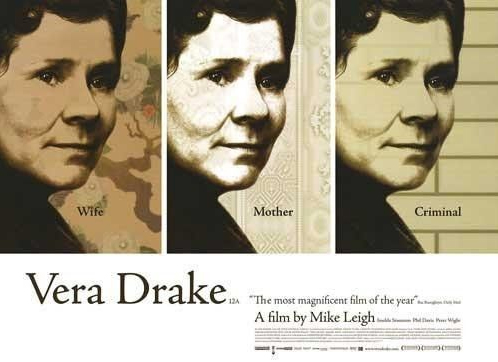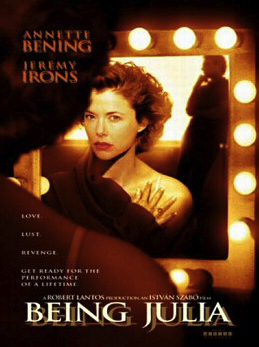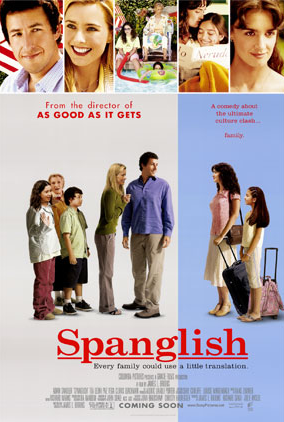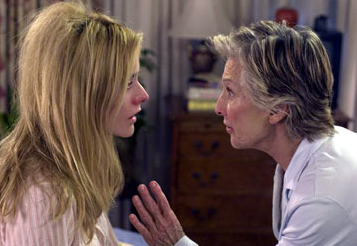Janet Gaynor and Mary Pickford. Norma Shearer, Marie Dressler, Helen Hayes, Katharine Hepburn, Claudette Colbert, and Bette Davis. Luise Rainer times two. Bette Davis, Vivien Leigh, Ginger Rogers, Joan Fontaine, Greer Garson, Jennifer Jones, Ingrid Bergman, and Joan Crawford. Olivia deHavilland, Loretta Young, Jane Wyman, and back to deHavilland. Judy Holliday, Vivien Leigh, Shirley Booth, Audrey Hepburn, Grace Kelly, Anna Magnani, Ingrid Bergman, and Joanne Woodward. Susan Hayward, Simone Signoret, Elizabeth Taylor, Sophia Loren, Anne Bancroft, Patricia Neal, and the Julies Andrews & Christie. Liz Taylor and Katharine Hepburn. Katherine Hepburn & Barbra Streisand. Maggie Smith, Glenda Jackson, Jane Fonda, and Liza with a "Z". Glenda Jackson and Ellen Burstyn. Louise Fletcher, Faye Dunaway, Diane Keaton, Fonda, Sally Field, and Sissy Spacek. Katharine Hepburn, Meryl Streep, Shirley MacLaine, and Sally Field who they really really liked. Geraldine Page, Marlee Matlin, Cher, Jodie Foster, Jessica Tandy and Kathy Bates. Jodie Foster, Emma Thompson, Holly Hunter, Jessica Lange, and Susan Sarandon at last. Frances McDormand, Helen Hunt, Gwyneth Paltrow, Hilary Swank, and Julia Roberts. Halle Berry, Nicole Kidman and Charlize Theron. Imelda Staunton or Annette Bening?

VERA DRAKE
Imelda Staunton is tiny. But as the titular character in this fine film from Mike Leigh (All or Nothing) her character is revealed quickly as a woman with a largesse of spirit. Or as her brother in the law in the film remarks "She's got a heart of gold, that woman." The time and setting is post WW II London. Vera Drake is loving mother and wife and neighbor as saint. She's first seen busily crisscrossing the frame, making pots of tea, checking in on the elderly and invalid, extending a warm dinner invitation to a lonely neighbor, and vigorously going about her duties at work as a cleaning lady. Finally and with little extra fanfare on the part of the filmmaker, she stops to 'help a young girl out.' This last phrase is Vera's preferred euphemism for the performing of an abortion. She knows somewhere inside that it's against the law. But she lives with and believes in the euphemism. She continues on her way and makes another pot of tea.
Vera's constant fussiness with pots of tea begins for the audience as a simple comic joy (just how many pots of tea can this woman make and talk about?) but gains dramatic resonance as the story unfolds. It's rather like the repeated "sweetheart" refrain from Brenda Blethyn in Leigh's most famous film Secrets and Lies. It's humorous at first, but what starts as an audience chuckle turns itself inside out to become a sad revealing mantra for the protagonist. Cynthia in Secrets and Lies needs the affection that her "sweetheart" term of endearment suggests. Vera, perhaps less desperately but in no smaller proportion, needs to be helping and comforting wherever she goes. The teapot is something like her world view and her idea of herself combined; Naive perhaps but always warm and comforting.
Once Vera is inevitably exposed as an abortionist her world begins to constrict. Mike Leigh with cinematographer Dick Pope seems to zero in on her, this already tiny woman shrinking into herself. There is no escape for her within the narrative as the police and courts move inexorably forward. And there's no escape within the film with the camera relentlessly in close-up mode.
Vera Drake is another big triumph as a film for Mike Leigh. It's an equal to the stunning Topsy Turvy. Like that rich 1999 film this is also beautifully modest and honest in pacing and tone, and embarrassingly rich in detail. The time period is perfectly evoked in decor, costuming, and linguistics. And, as is to be expected within a Leigh film, the treasures are also abundant in the performances. The standouts include Adrian Scarborough as Vera's loving brother-in-law and Ruth Sheen as a particularly shifty neighbor Lily. For Imelda Staunton, an acclaimed stage performer and character actress usually seen in very small film roles, Vera is an role of unexpected enormity. She repays the opportunity with beautifully simple heartbreaking work. She never showboats but commands your attention throughout.
The heart of this motion picture may be this small doting tea-making woman but the film is expansive enough to include smart commentary on moral hypocrisies, socioeconomic travails, and familial dynamics...all Mike Leigh specialties. Funny that this motion picture manages to capture so much, when the screen is so often filled with just the face of one seemingly insignificant woman.
A
 BEING JULIA
BEING JULIA
Annette Bening is grand. She first went supernova in 1990 tearing up the silver screen with a particularly brilliant full-bodied performance in The Grifters as a sexually opportunistic con woman. She followed that breakthrough up with another smashing lead in Bugsy opposite her soon to be husband Warren Beatty. At that time it seemed a certainty that she would dominate the new decade as its major actress discovery. But then marriage and children took precedence and she swiftly disappeared from view. For those instant early fans who always expected great things from Ms. Bening, there's arguably only been American Beauty to cheer them in the past ten years. Discerning moviegoers can now rejoice. Bening is back and with an appropriately juicy role no less.
In this new feature she plays Julia Lambert, a theatrical diva hitting midlife and losing her grip a little. She falls foolishly in love with a gold-digging and philandering young man and much trouble ensues. But the story isn't the star of Being Julia, Annette is. Julia is essentially an old fashioned star vehicle with all the strengths and weaknesses that implies. The storyline is a bit muddled and lengthy. It involves several amusing characters (essayed by a truly funny and gifted ensemble), a bitchy revenge plot, and a great deal of drama queen antics at its center.
For those moviegoers who treasure great diva performances, Bening's tour de force will be heaven sent. Her screen performances have always been a touch theatrical (as her naysayers will quickly tell you) but that's entirely appropriate to the character here and exceedingly fun to watch. Whether throwing a tantrum, sending other characters spinning with sudden turns of mood, crying, loving, or laughing (oh, that glorious Bening laugh --I've always maintained that she had the best in the business) this actress is always on stage. Part of the strength of Bening's portrayal is Julia's self-aware helplessness when it comes to this often discouraging point. Her son (Tom Sturridge) once accuses her of acting during a quiet mother and son tete-a-tete. Julia's reaction indicates that she knows it too. There's a resigned lived-in feeling to the accusation and confession. The temperamental star is the first to laugh at her own flaws. She does so often. This goes along way towards making her mean spirited moments (all divas have them after all) more palatable.
There are those will dismiss this vehicle that contains her as a mere trifle. And, truthfully, it is light as a feather. But it's a leisurely and pleasurable romp nonetheless. From Bening's riveting antics to hilarious supporting turns from Lucy Punch (as Bening's new rival on both the stage and in the boudoir) to Michael Gambon as the ghost of Lambert's acting teacher in the movie's funniest running gamble, the theatrical setting is milked for maximum effect. While the film could have used another pass through the editing room to sharpen it (the first act is strangely slow to no apparent effect) it builds momentum as it goes. The last half zooms by as Julia plots and rules the roost again.
Fourteen years after her spectacular breakthrough Annette Bening finally has a role big enough to truly spotlight her talent. Ah, but then again who needs the light source? Not Bening. She's as radiant as ever. Talent, Beauty, Charisma. Dramatic Force and Comic Timing: She's always had all the precious ingredients of a Great Star and Actor. In Being Julia she found the right role to complement those ridiculously abundant gifts.
B
In February 2005 on Oscar night I highly suspect that one of these two performers will grace the stage. At the very least it's hard to imagine 2004's five Best Actress nominees not containing these two grand yet highly dissimilar turns. Imelda? Annette? Whichever. The winner will hold the Oscar high as she gives thanks. For either Imelda and Annette I am on my feet for a standing ovation. I toss bouquets and shout "Brava!"
 Friday, December 17, 2004 at 2:11PM
Friday, December 17, 2004 at 2:11PM  "You'll Laugh. You'll Cry" It's the most generic and familiar of movie poster blurbs. That junket-friendly quote would normally be an apt description of the audience reaction to any James L Brooks film. That writer-director is the man behind an impressive array of television series and funny Oscar-lauded tearjerkers such as Terms of Endearment , Broadcast News, and As Good as it Gets. If those three success stories have one thing in common (apart from their three hanky laughs) it's that they all feature awards-baiting roles for actresses playing funny, frazzled neurotic women with big hearts. It's not as misogynist as it sounds. Or it hasn't been up until Spanglish...
"You'll Laugh. You'll Cry" It's the most generic and familiar of movie poster blurbs. That junket-friendly quote would normally be an apt description of the audience reaction to any James L Brooks film. That writer-director is the man behind an impressive array of television series and funny Oscar-lauded tearjerkers such as Terms of Endearment , Broadcast News, and As Good as it Gets. If those three success stories have one thing in common (apart from their three hanky laughs) it's that they all feature awards-baiting roles for actresses playing funny, frazzled neurotic women with big hearts. It's not as misogynist as it sounds. Or it hasn't been up until Spanglish...




